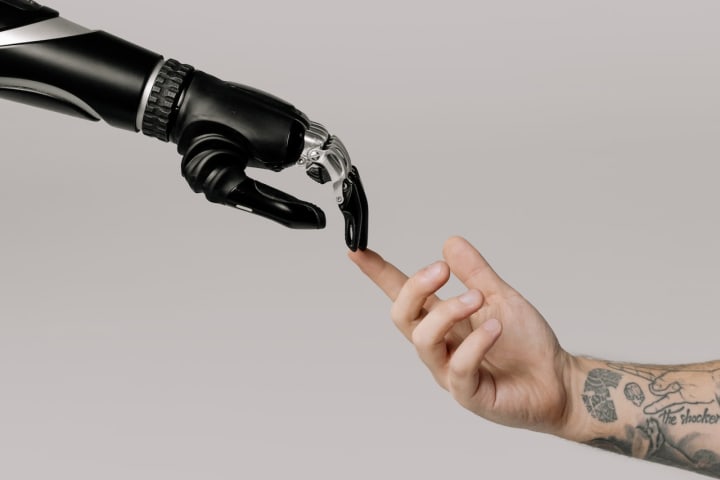AI WILL KILL YOUR JOBS?
IMPACT OF AI IN JOBS

The advent of Artificial Intelligence (AI) has ignited a plethora of discussions concerning its implications on the job market. Advocates assert that AI will revolutionize industries, increase productivity, and create novel employment opportunities. Conversely, skeptics argue that AI will result in widespread job displacement and unemployment. This essay aims to provide a comprehensive analysis of the potential effects of AI on jobs, exploring both the positive and negative aspects.
1. AI and Job Creation:

Contrary to popular belief, AI has the potential to generate new job opportunities across various sectors. As AI technologies continue to advance, specialized roles such as AI engineers, data scientists, and machine learning experts are becoming more in demand. Additionally, AI-driven innovations can give rise to new industries, requiring a skilled workforce to develop, maintain, and optimize these technologies.
2. AI and Increased Productivity:

One of the primary benefits of AI in the workforce is its ability to enhance productivity. AI-powered tools can automate repetitive and mundane tasks, freeing up human workers to focus on more complex and creative aspects of their jobs. This increased productivity can lead to higher output and economic growth, creating a positive impact on the job market.
3. Job Displacement and Transformation:

While AI may create new job opportunities, it is undeniable that certain roles will be displaced or transformed. Routine-based jobs, particularly those involving manual tasks and data processing, are most vulnerable to automation. Workers in these sectors may need to adapt their skills or transition to new industries to remain employable.
4. AI's Role in Job Augmentation:

Rather than solely replacing jobs, AI has the potential to augment human abilities and enhance job functions. Collaborative efforts between humans and AI can lead to more efficient decision-making processes, improved customer service, and optimized resource allocation.
5. Upskilling and Reskilling for AI:

To prepare the workforce for the AI era, investments in education and training are crucial. Governments, organizations, and individuals must focus on upskilling and reskilling programs to equip workers with the necessary competencies to work alongside AI technologies.
6. AI and Entrepreneurship:

AI technologies can empower entrepreneurs by providing access to advanced tools, analytics, and market insights. This can lead to the creation of innovative startups and small businesses, contributing to job creation and economic growth.
7. AI in Specific Industries:

Different industries will experience varying impacts from AI adoption. For example, the manufacturing sector may witness significant job displacement due to increased automation. In contrast, the healthcare industry might see job growth as AI supports medical research, diagnosis, and personalized treatments.
8. Ethical and Social Considerations:

AI's impact on jobs raises ethical and social considerations. Policymakers must address issues such as income inequality, labor rights, and privacy concerns. Balancing technological progress with social welfare is essential for a sustainable and inclusive future.
9. AI Adoption in Developing Countries:

AI adoption may differ significantly between developed and developing countries. While developed nations may have the resources to embrace AI, developing countries could face challenges in adjusting to the technological shift. Bridging this gap is essential to avoid exacerbating global economic disparities.
CLOSURE
In conclusion, the impact of AI on jobs is a complex and multifaceted issue. While AI has the potential to create new job opportunities, it will also lead to job displacement and require a focus on upskilling and reskilling the workforce. Policymakers, businesses, and individuals must work collaboratively to ensure that AI is harnessed responsibly and ethically, aiming for a future where AI complements human capabilities and enhances the overall well-being of society. Embracing the potential of AI while addressing its challenges is key to navigating the changing landscape of the job market in the AI era.
About the Creator
Joblul Mustan
Joblul Mustan is a dedicated and passionate writer specializing in the intersection of technology and finance. With an unyielding love for all things tech and an insatiable curiosity for the complexities of the financial world.






Comments
There are no comments for this story
Be the first to respond and start the conversation.